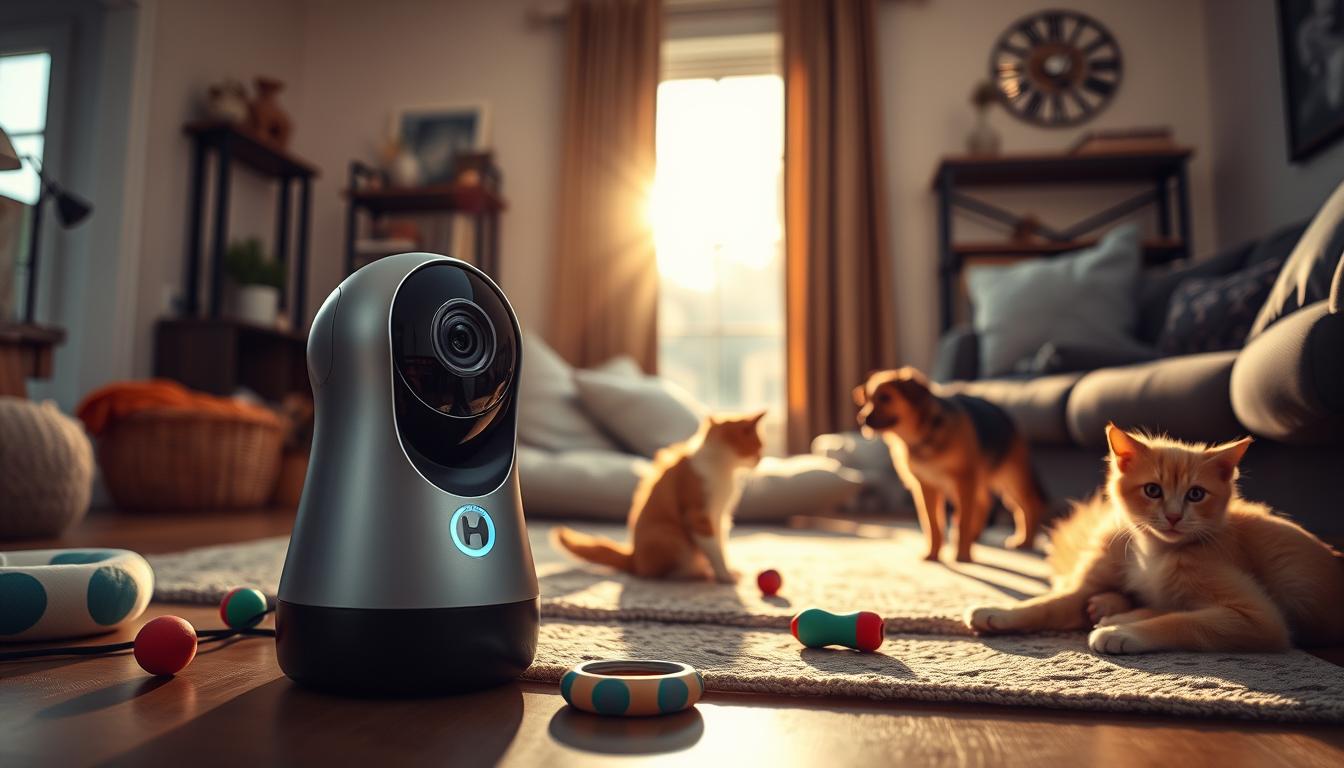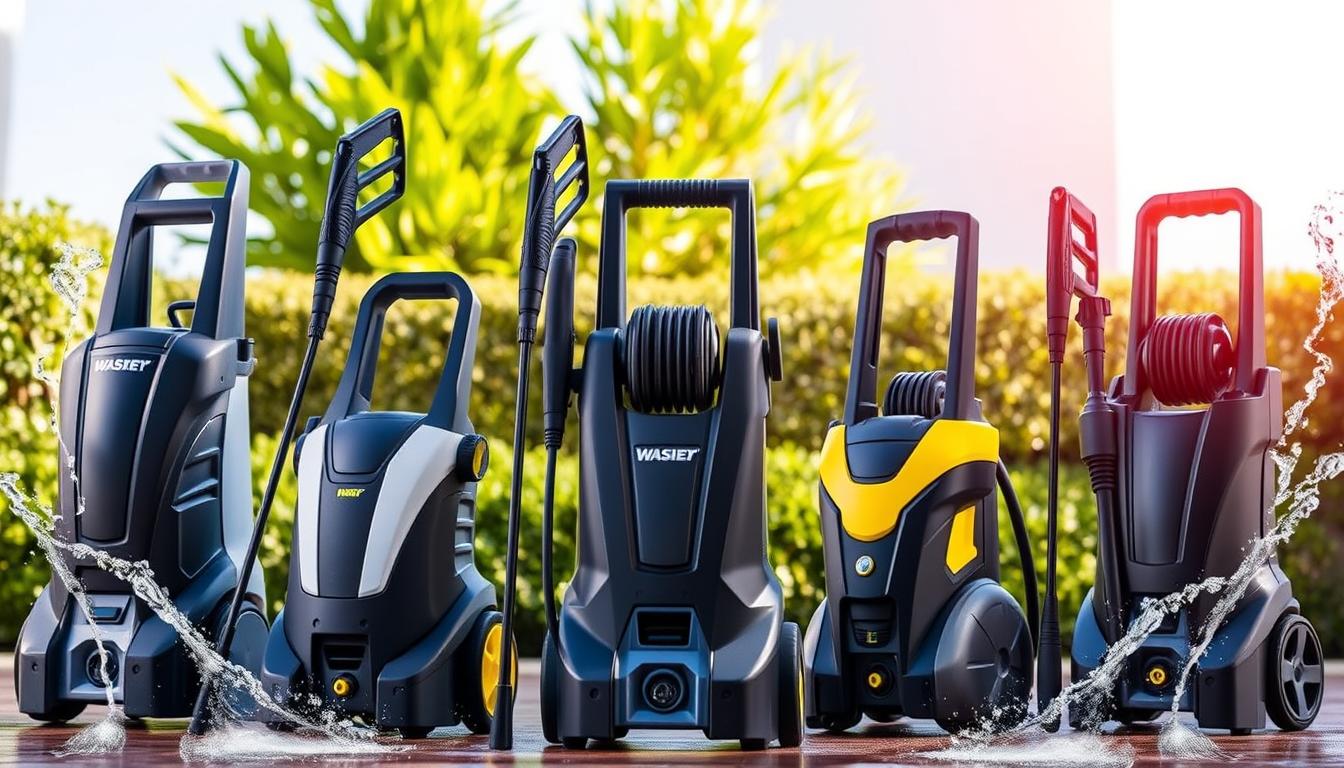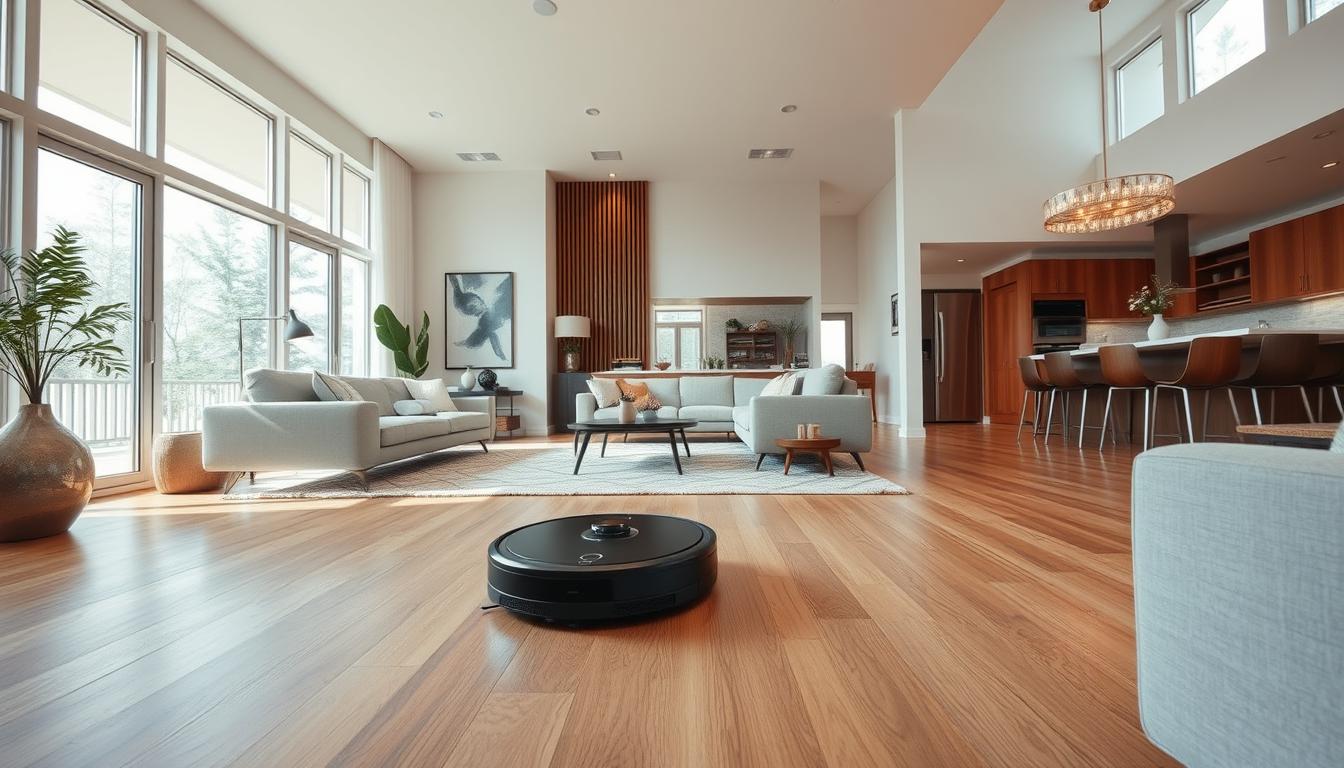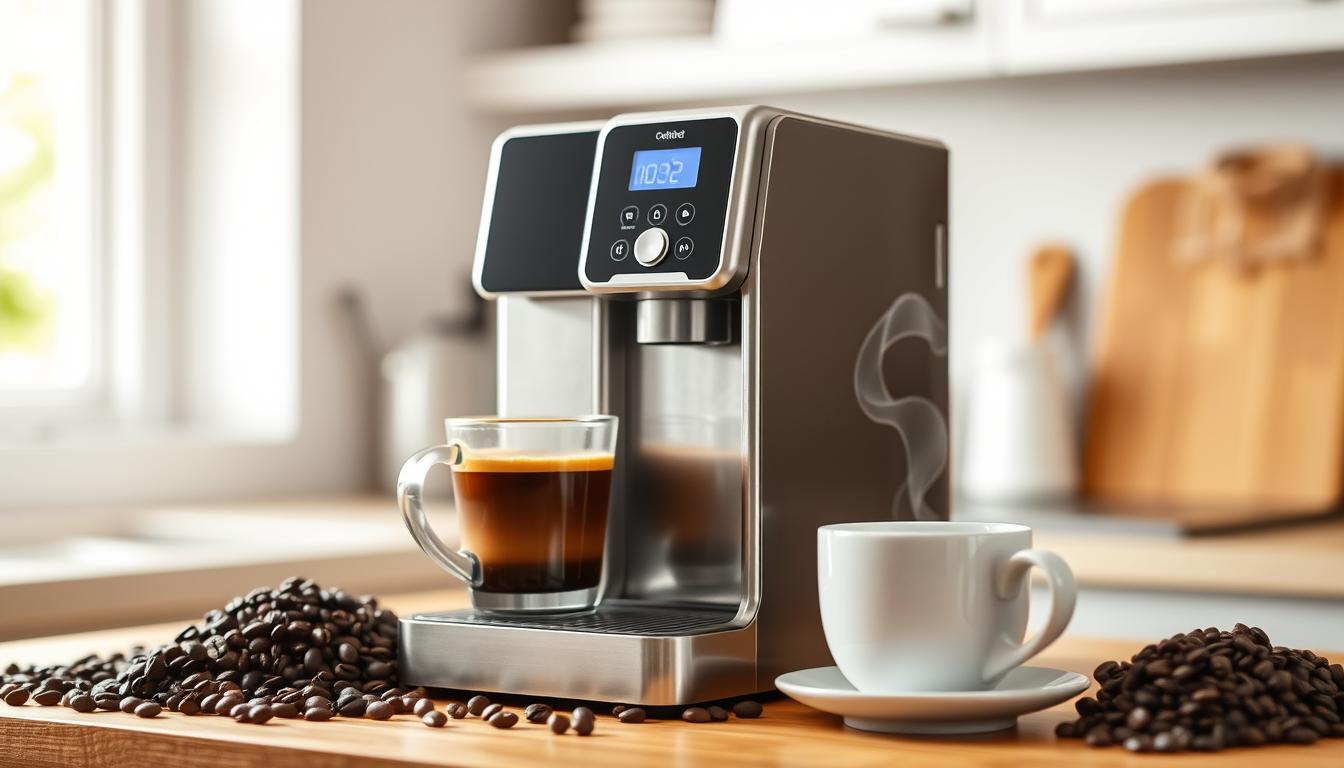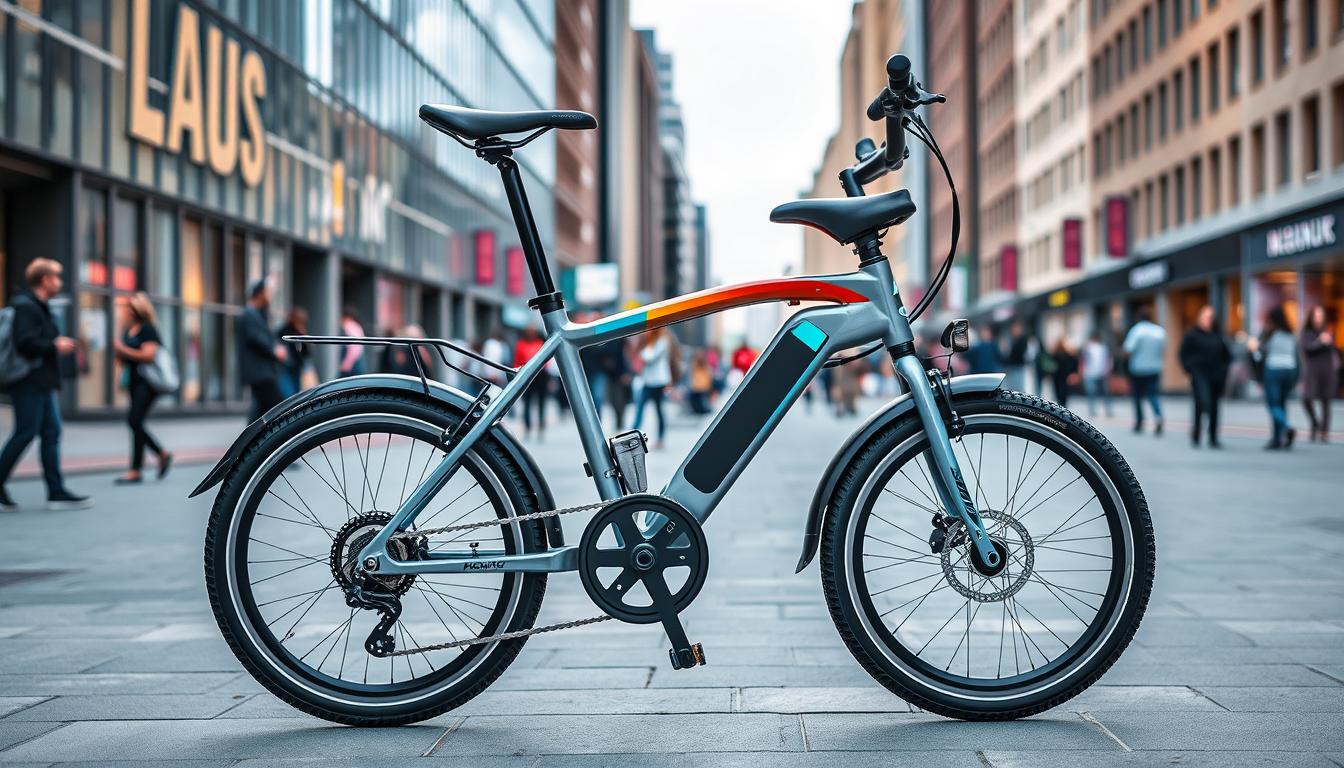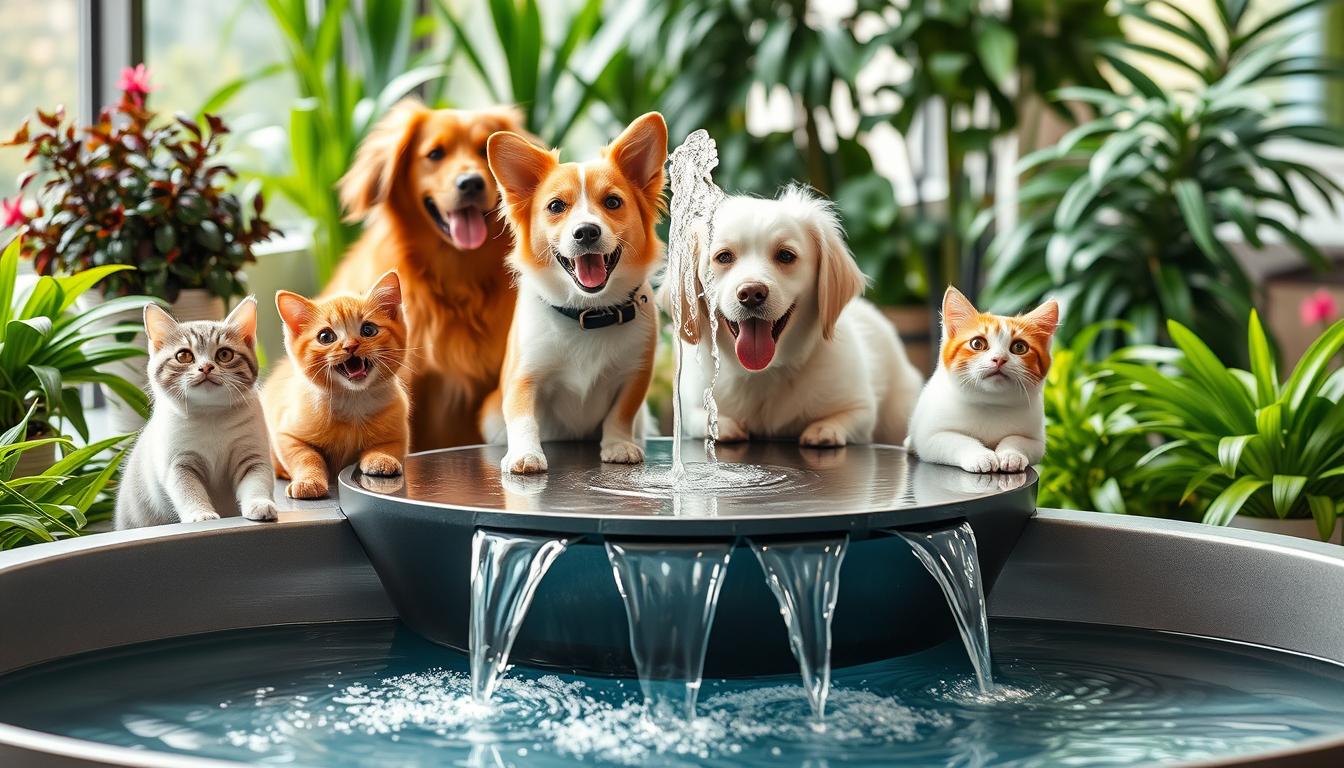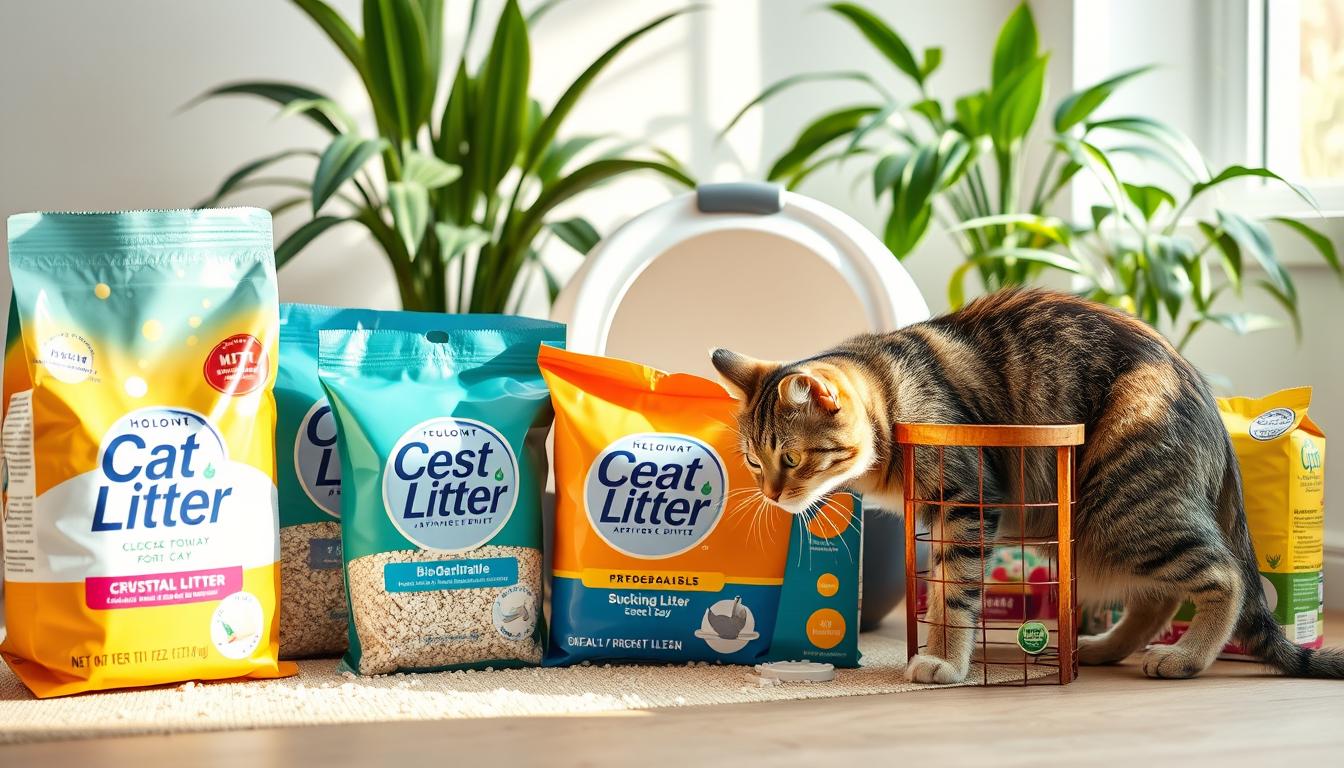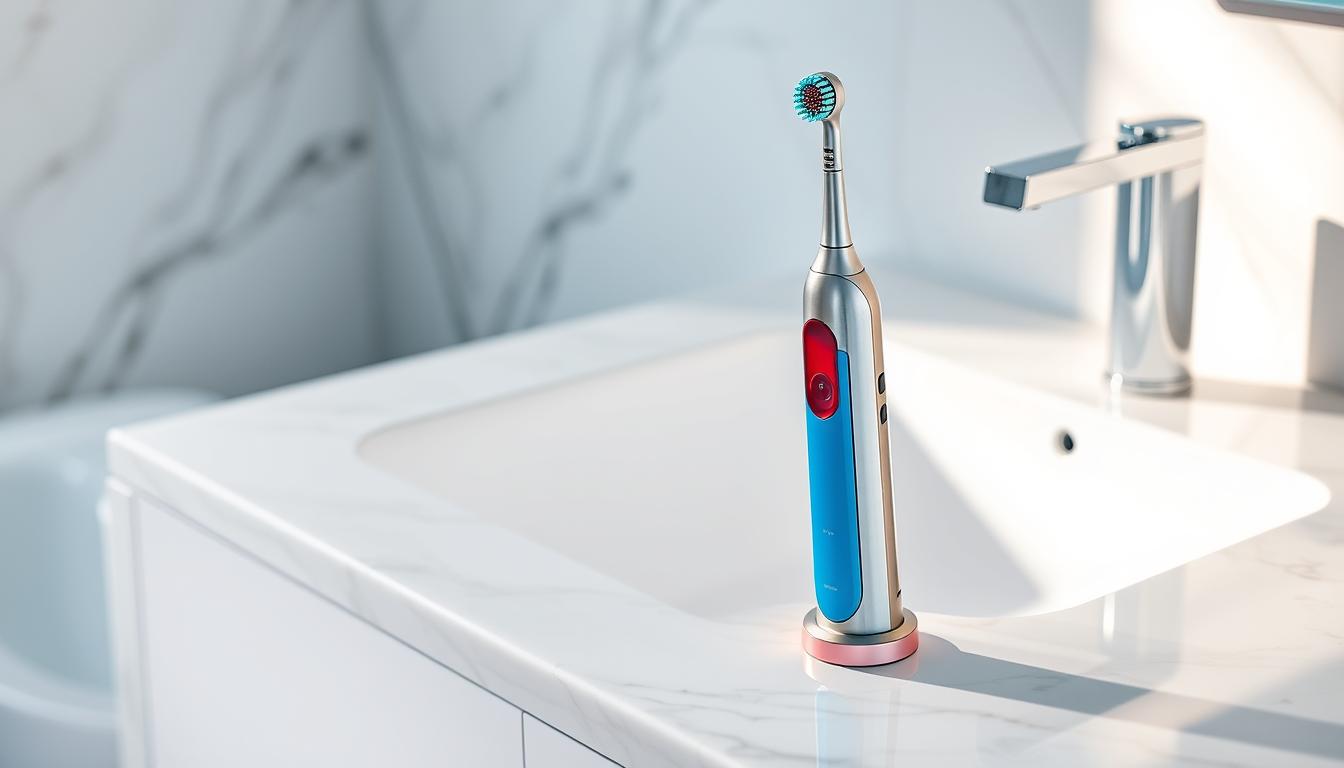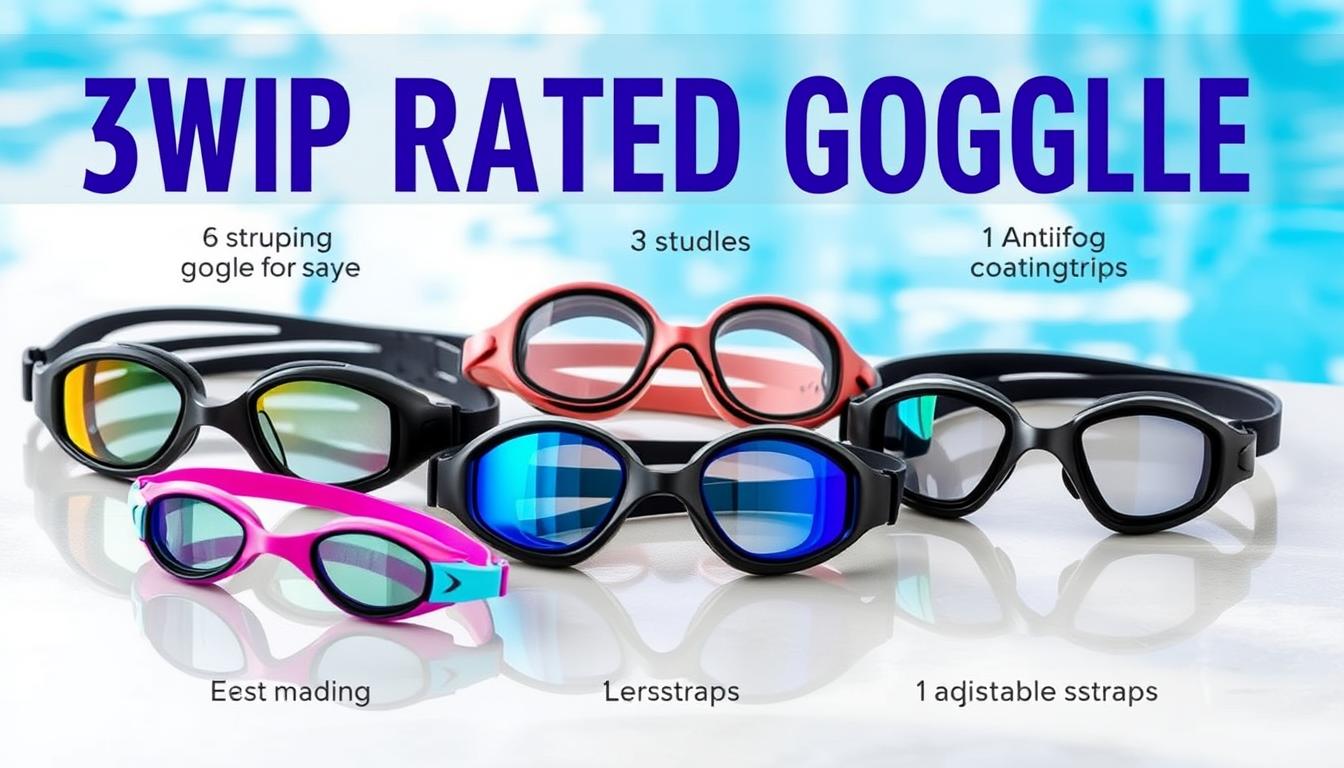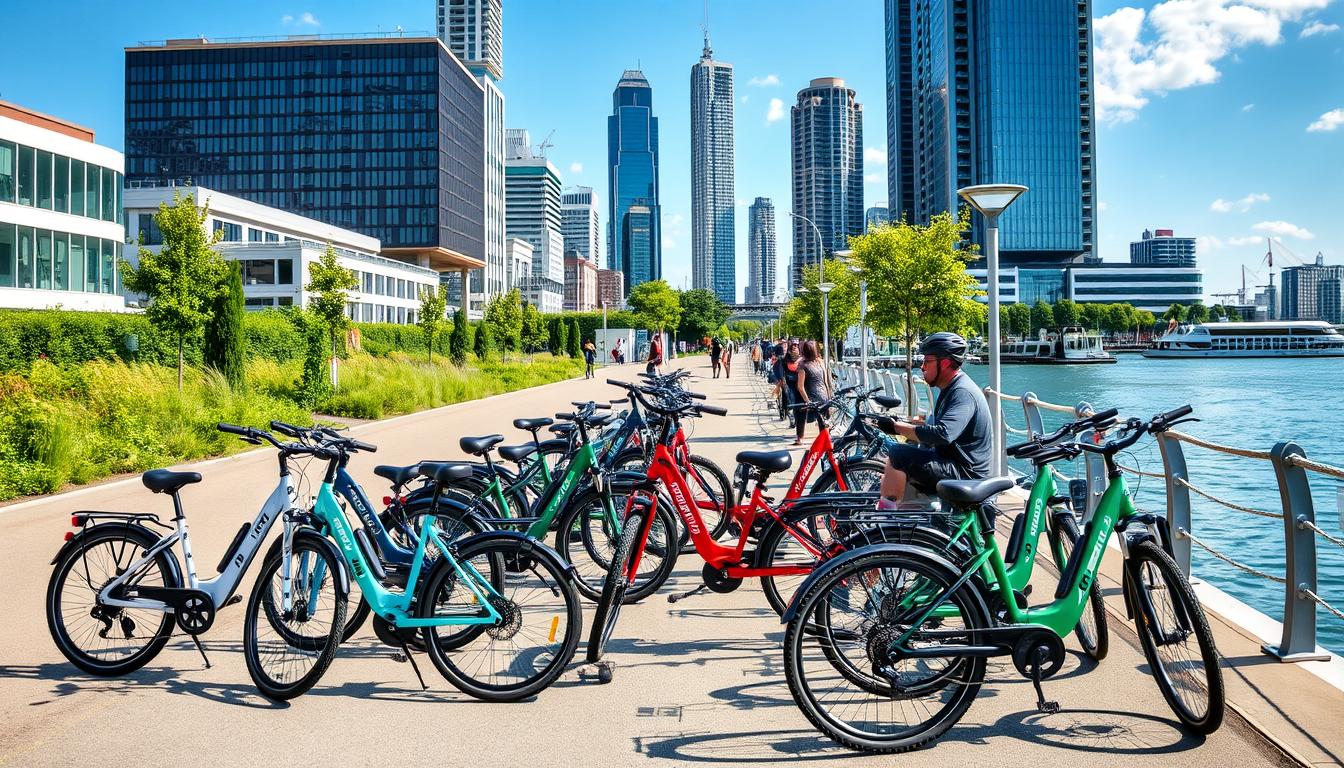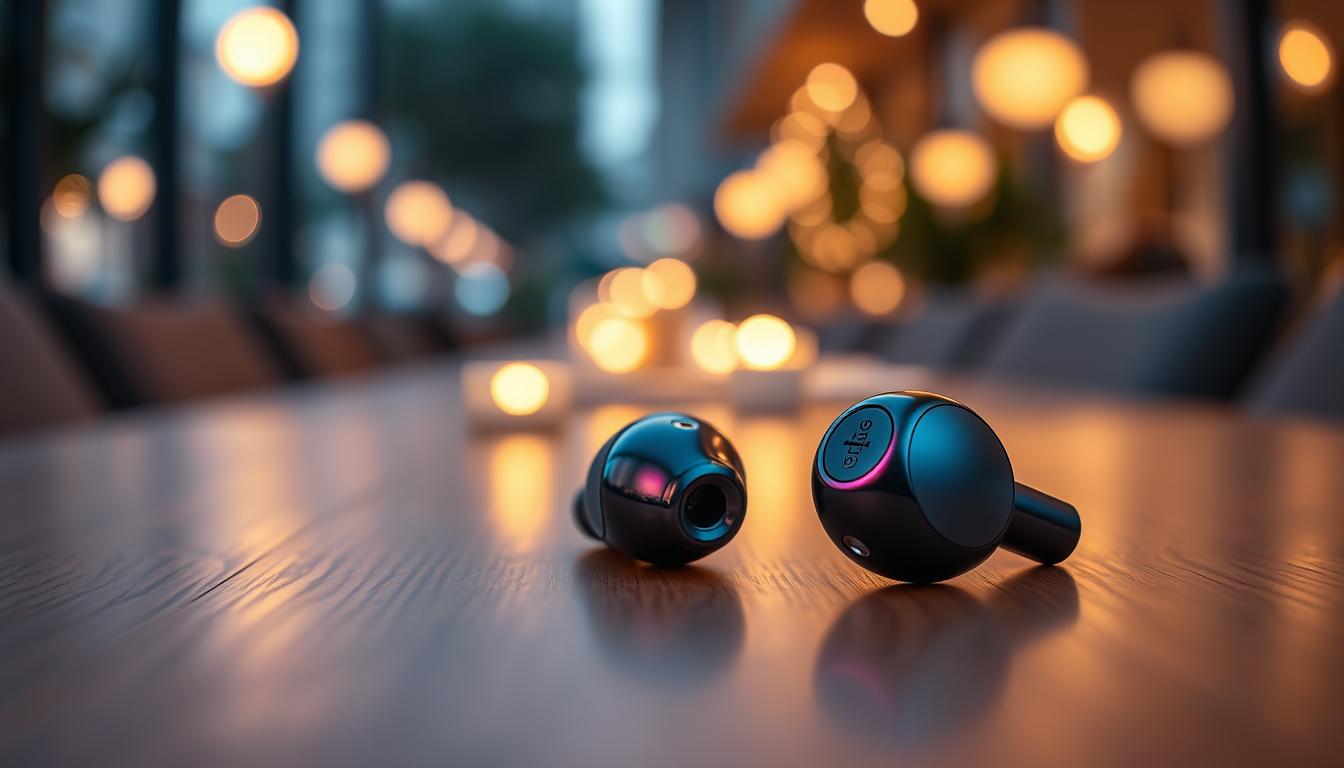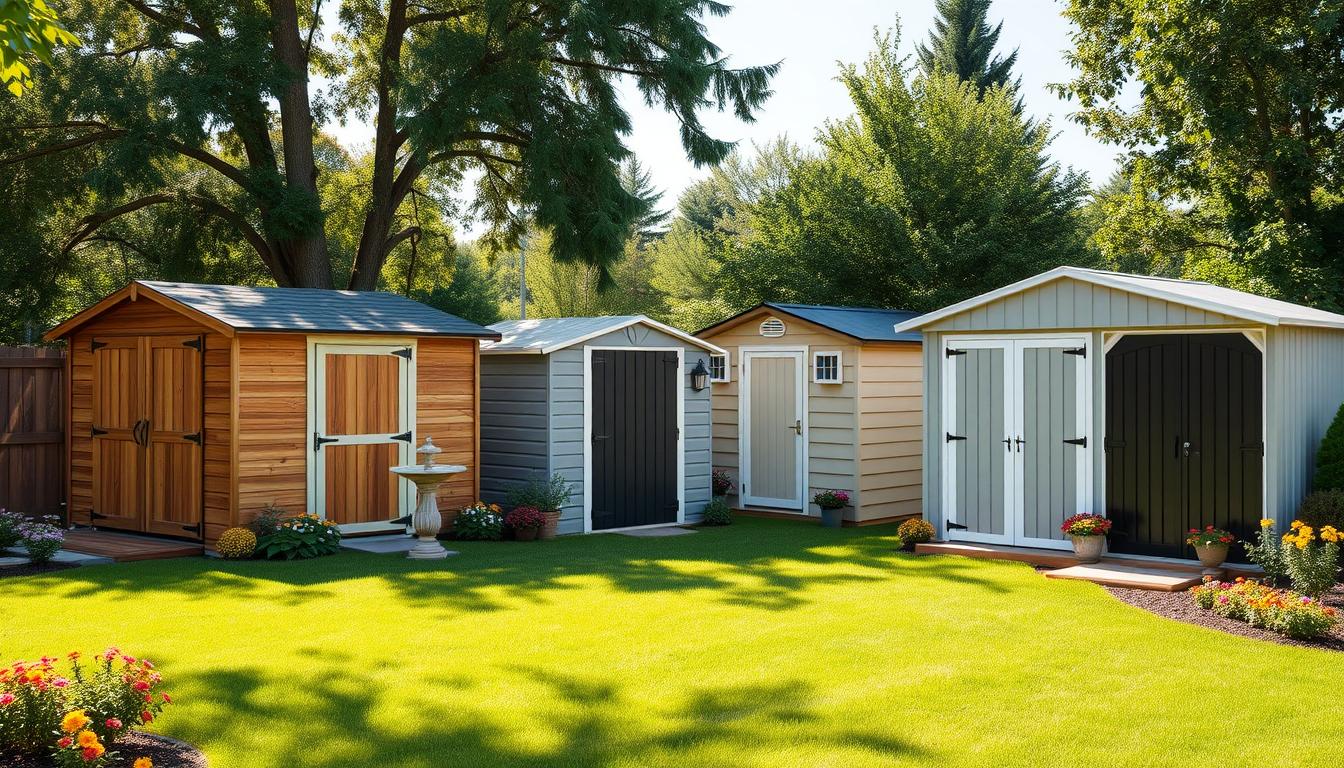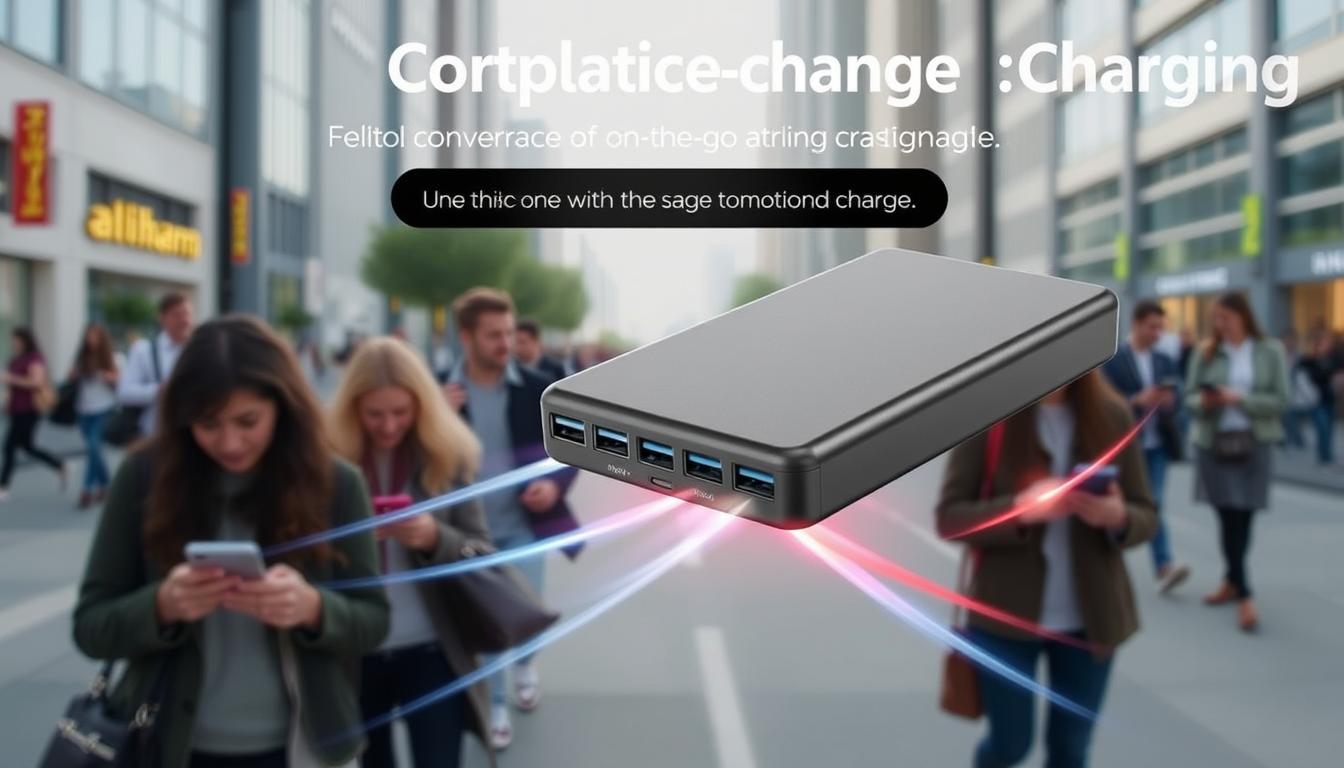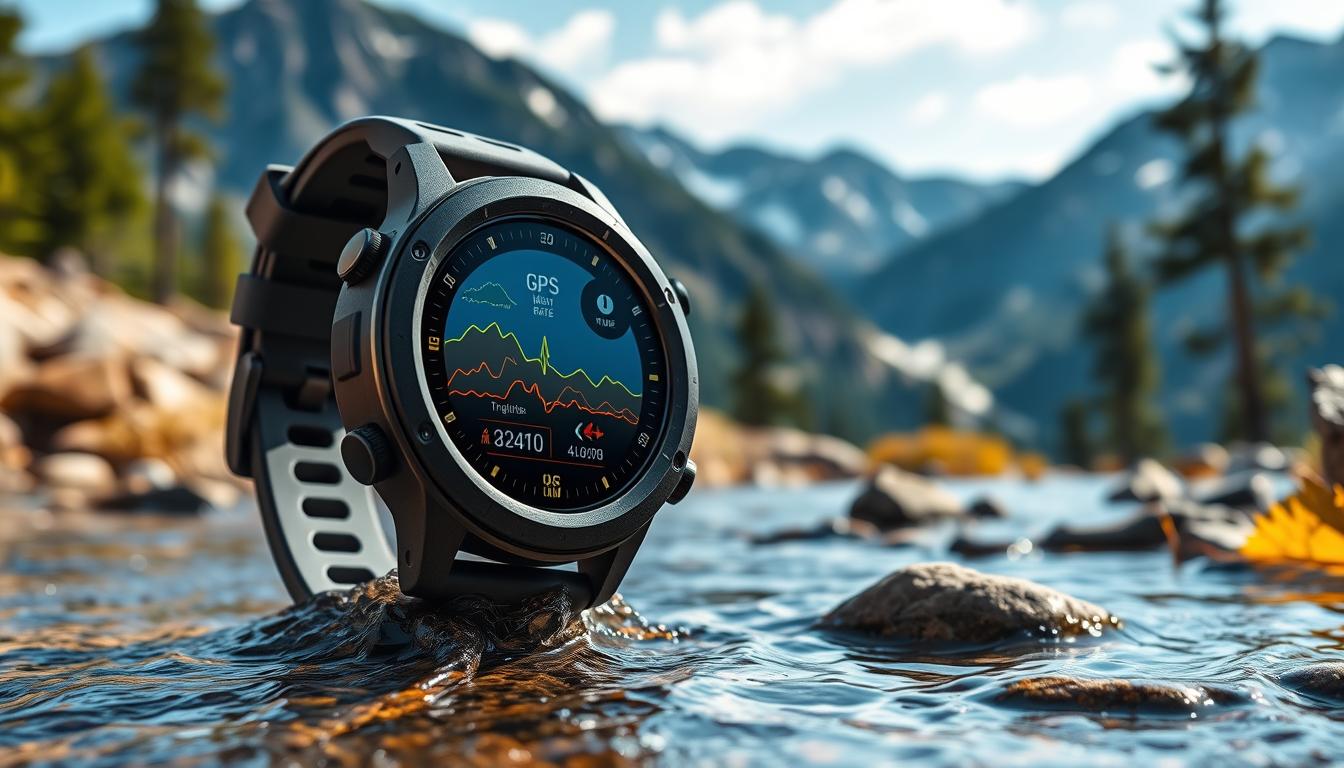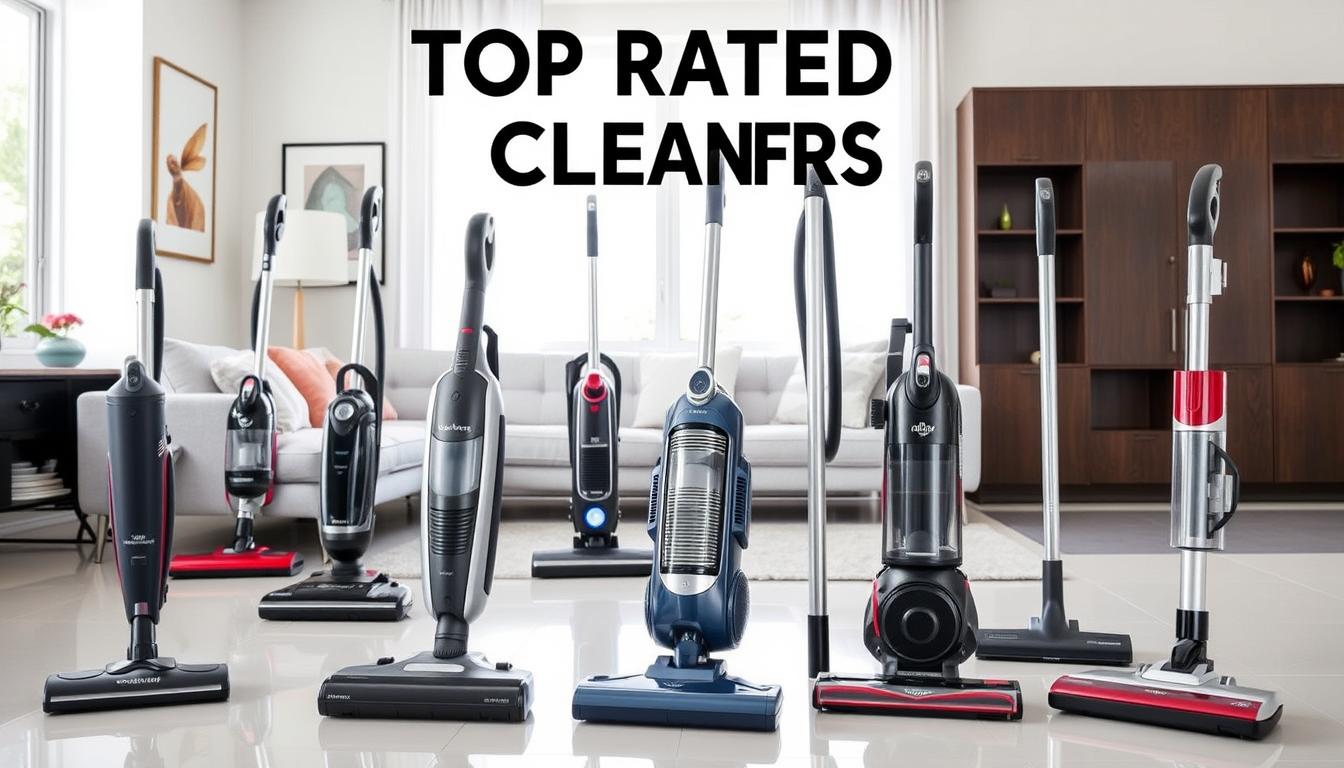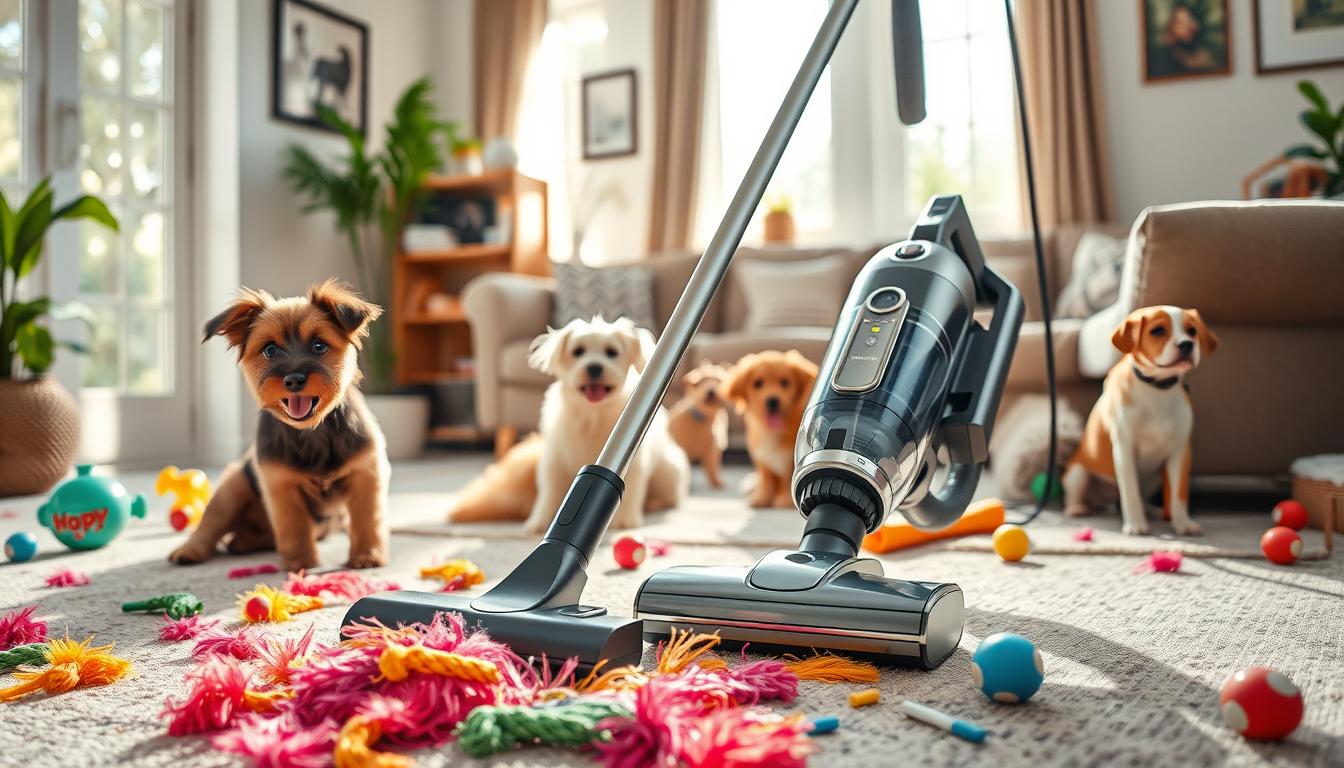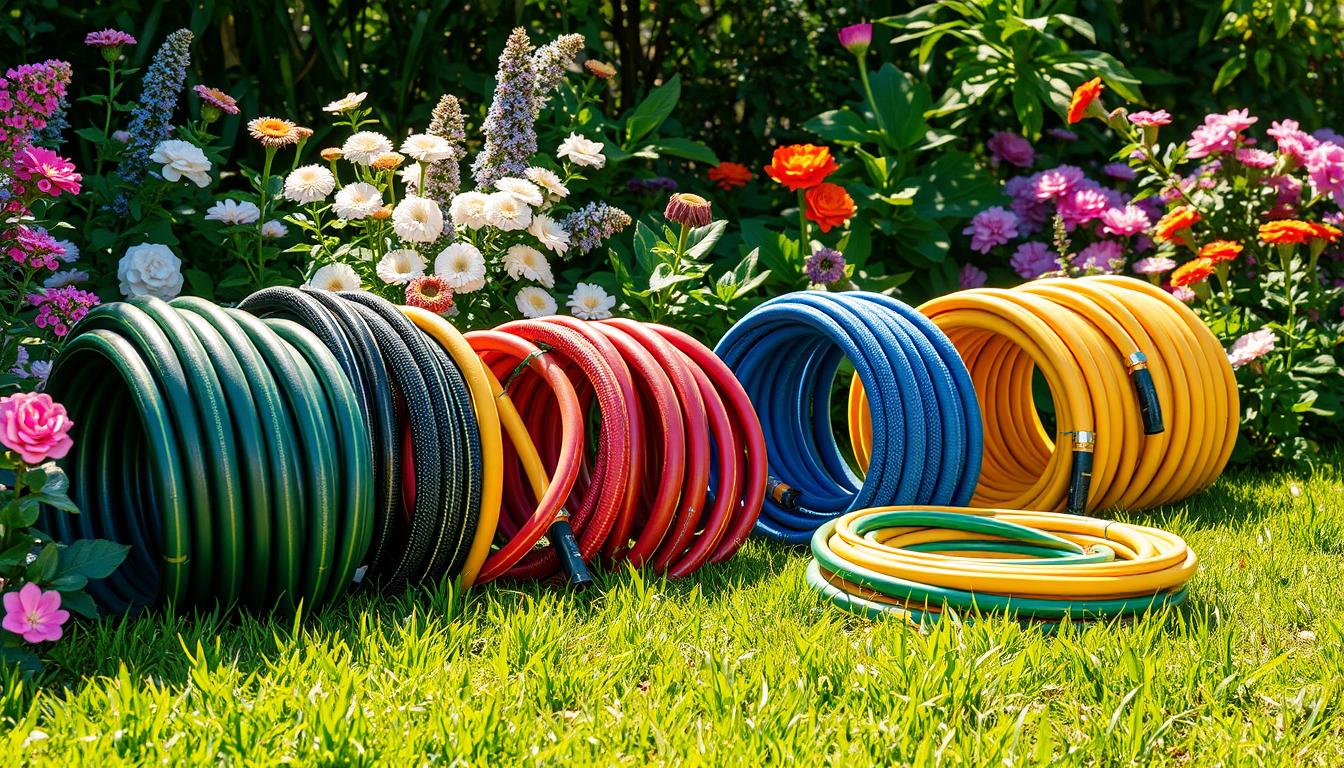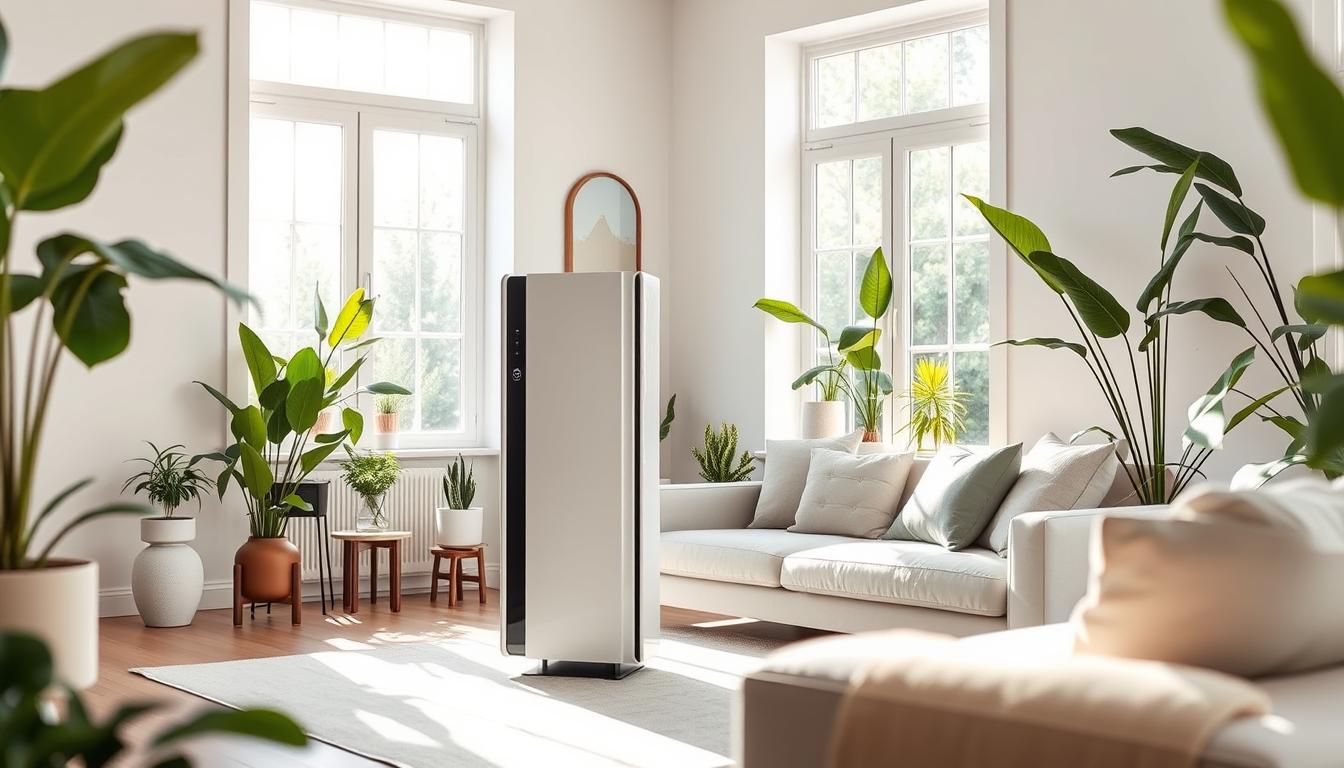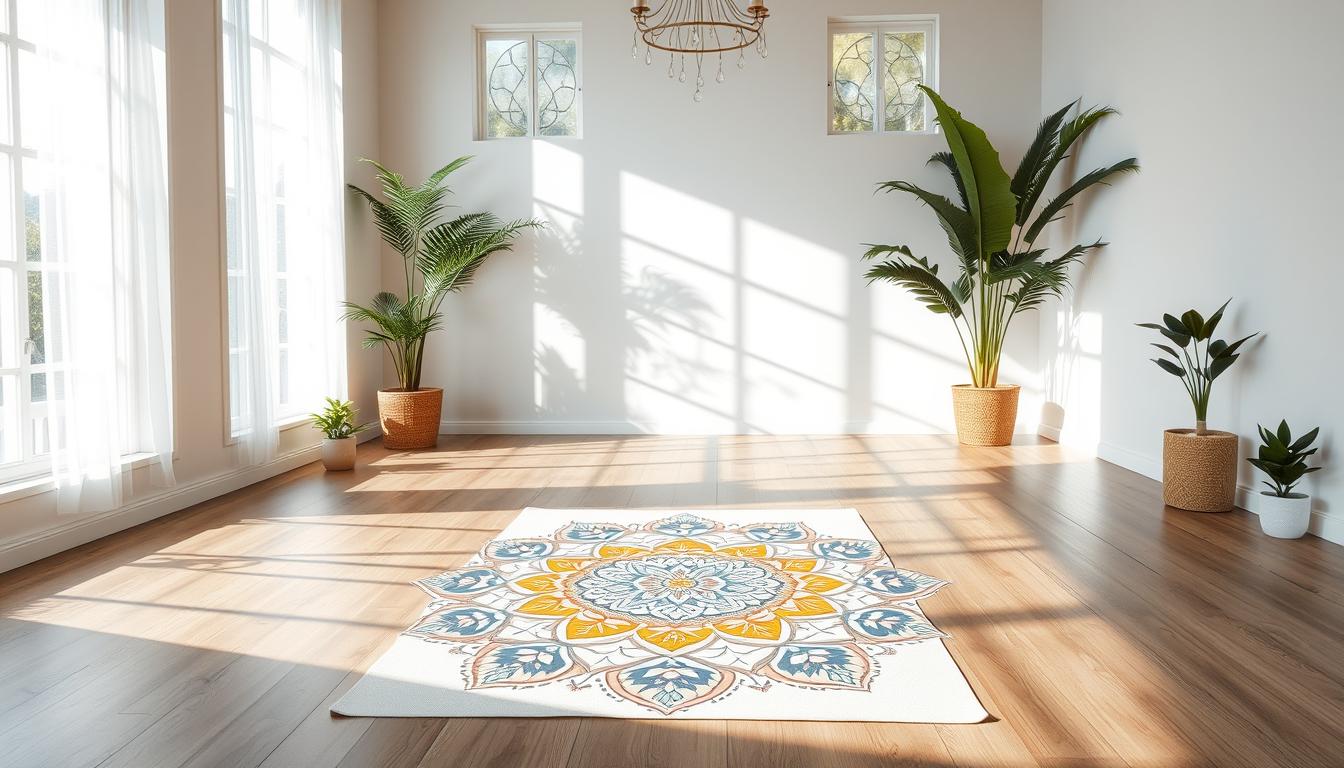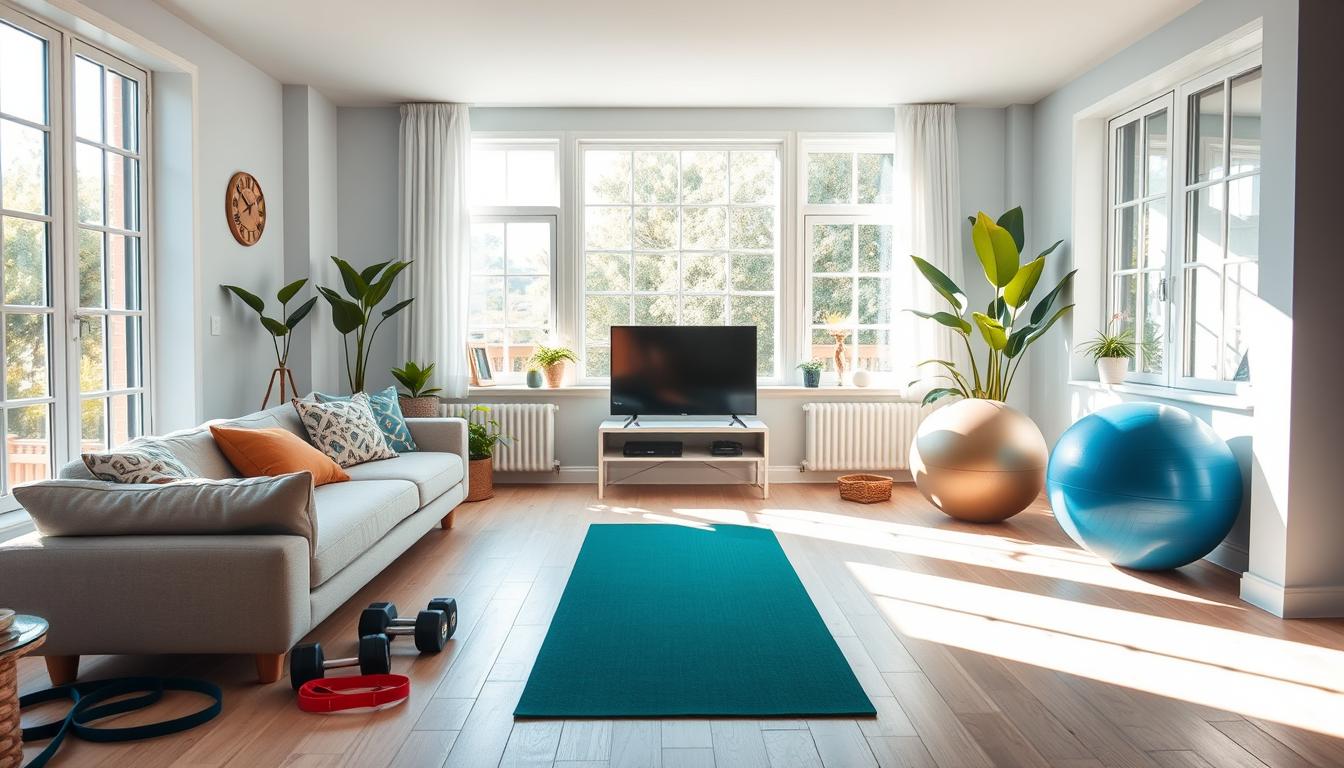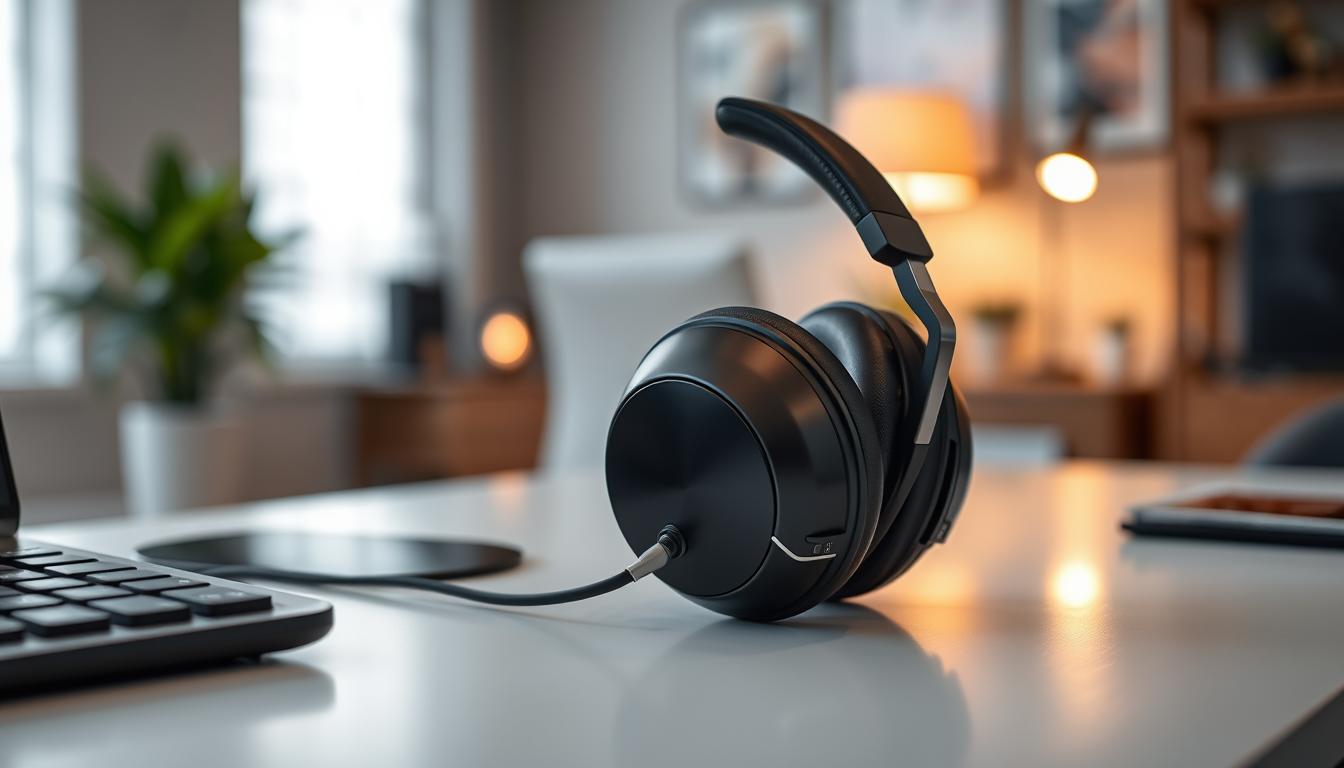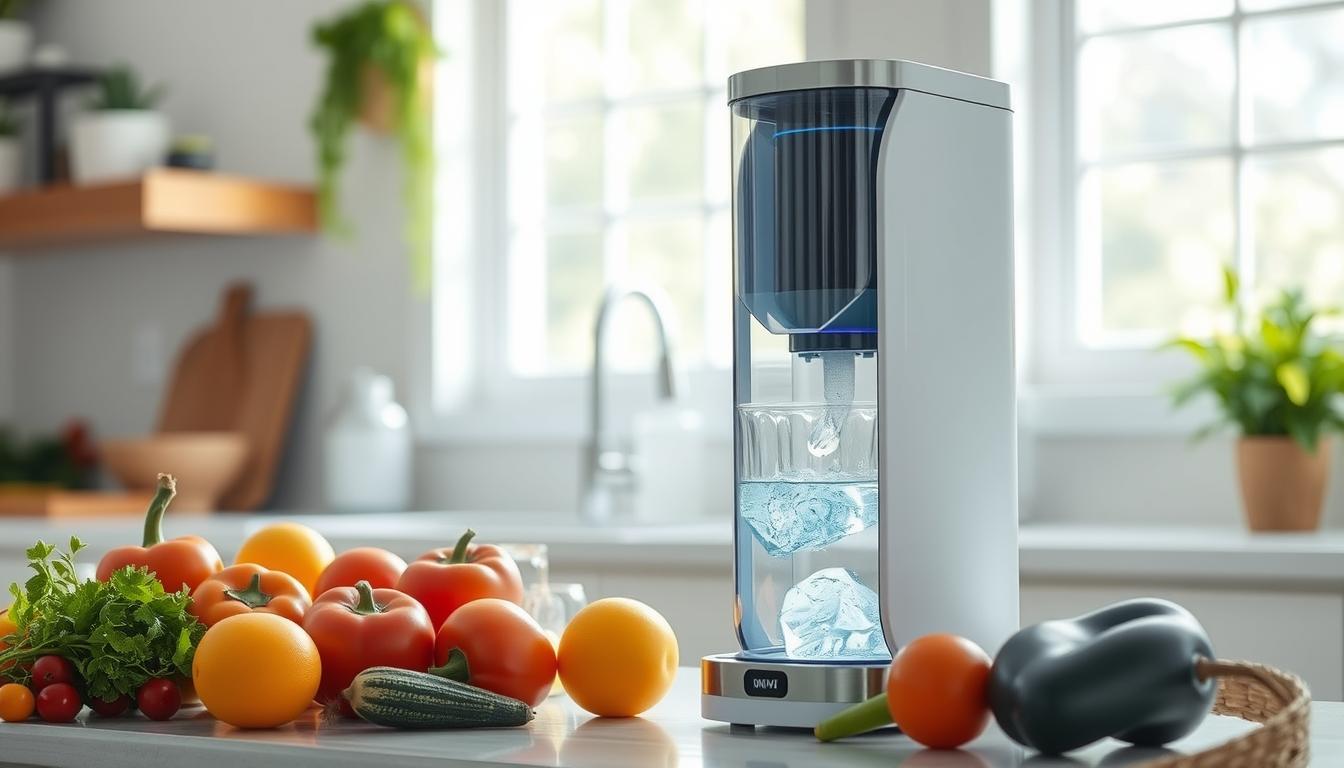
The Best Water Filter for Your Home
Having clean, healthy drinking water is crucial for today's homeowners. You might worry about contaminants, taste, or how it affects the environment. The right water filter can solve these issues. This guide will show you how to pick the best water filter for your home. We'll cover why filtration is important, the different types of filters, and what certifications to look for.
Key Takeaways
- Discover the health and environmental benefits of clean drinking water.
- Learn about the various water filtration systems available for your home.
- Understand the importance of water filter certifications and what they mean.
- Identify the key factors to consider when choosing the best water filter for your needs.
- Explore top water filter brands and the best options for different budgets and requirements.
Importance of Clean Drinking Water
Having access to clean, filtered water is key for staying healthy and protecting the environment. Filtered water gets rid of harmful stuff like lead, chlorine, and bacteria. This makes the water safer to drink and improves its quality.
Health Benefits of Filtered Water
Drinking filtered water is good for you in many ways. It keeps you hydrated, tastes better, and cuts down on toxins. This helps keep you healthy and lowers the chance of getting sick from bad water.
Environmental Impact of Unfiltered Water
Using unfiltered water can harm the planet. It leads to more plastic waste and uses a lot of energy for bottled water. Getting a good water filter system helps lessen this harm and supports sustainable water use.
| Benefit | Filtered Water | Unfiltered Water |
|---|---|---|
| Health | Removes contaminants, improves hydration | Increased risk of waterborne illnesses |
| Environment | Reduces plastic waste and energy consumption | Contributes to plastic pollution and waste |
| Taste | Enhances the taste of water | May have an unpleasant taste |
By focusing on clean water and using a good water filter, homes can enjoy many health and environmental perks. This small change can make a big difference in your health and the planet's well-being.
Types of Water Filters
There are many water filter types and water filtration technologies for clean drinking water at home. You can choose from simple pitcher filters to advanced whole-house systems. These options fit different needs and budgets.
Pitcher filters are common, using activated carbon to clean water. They are affordable and easy to use, making them popular. Faucet-mounted filters work the same way but attach to your kitchen sink.
For better water filtration systems, consider under-sink and whole-house filters. Under-sink filters are installed under the sink, giving you filtered water from the tap. Whole-house filters clean all water in your home, making sure every faucet and appliance has clean water.
Advanced water filtration technologies like reverse osmosis (RO) and ion exchange are also available. RO systems use a membrane to remove many contaminants. Ion exchange filters target specific minerals and impurities.
When picking a water filter, think about your water source, the contaminants you want to remove, and your water use. Knowing the different water filter types and water filtration technologies helps you choose the right water purifier option. This ensures your family has clean, safe drinking water.
Understanding Water Filter Certifications
Choosing the right water filter for your home is important. Look for certifications from NSF International. These ensure the filter removes contaminants and is safe. NSF/ANSI standards, like NSF 42 and NSF 53, are key for checking water filter quality.
NSF Standards for Water Filters
The NSF standards aim to keep our drinking water safe. They set strict rules for removing certain contaminants. Here's a look at some important NSF standards for water filters:
- NSF 42 - Checks if a filter can remove taste, odor, and chlorine.
- NSF 53 - Tests if a filter can remove harmful substances like lead and cysts.
- NSF 401 - Focuses on removing new contaminants, like drugs and personal care products.
- NSF 44 - Covers water softeners and filters that use ion exchange technology.
Choosing a water filter with NSF certification means your drinking water is safe and effective.
| NSF Standard | Contaminant Reduction |
|---|---|
| NSF 42 | Chlorine, taste, and odor |
| NSF 53 | Lead, cysts, and VOCs |
| NSF 401 | Emerging contaminants |
| NSF 44 | Water softeners and ion exchange filters |
"When it comes to the quality and safety of your home's drinking water, certification from reputable organizations like NSF International should be a top priority."
Factors to Consider When Choosing a Water Filter
Choosing the right water filter for your home is important. You need to think about your water source and quality. This could be from a city supply or a private well. Also, consider your household size and how much water you use every day.
Water Source and Quality
If your water comes from the city, check the local water quality reports. These reports tell you about the contaminants in your water. If you have a well, test your water to find out what it needs.
Household Size and Water Usage
The size of your household and how much water you use matters. Big families or homes use more water. You'll need a filter that can handle more water and clean it faster.
Think about your water source and how much water you use. This helps you pick a water filter that meets your water filtration needs. It ensures your family gets clean, safe drinking water.
Top Water Filter Brands
Top water filter brands are key to clean, tasty drinking water. They offer a wide range of products for different needs. From Brita filters to Berkey systems, there's a lot to choose from.
Companies like Aquasana, Pur, and Aqua-Pure are well-known for their quality. They help families in the U.S. get rid of harmful contaminants. This makes drinking water healthier and more enjoyable.
| Brand | Specialty | Notable Features |
|---|---|---|
| Brita | Pitcher and Faucet Filters | Reduces chlorine, copper, mercury, and cadmium |
| Berkey | Gravity-Fed Filters | Removes up to 99.999% of pathogenic bacteria and 99.9% of viruses |
| Aquasana | Whole-House and Under-Sink Filters | Certified to remove over 77 contaminants, including lead and chlorine |
| Pur | Pitcher, Faucet, and Dispenser Filters | Reduces 70+ contaminants, including lead and mercury |
| Aqua-Pure | Reverse Osmosis Systems | Removes up to 99% of TDS (Total Dissolved Solids) |
These brands are known for their reliable water purification. Knowing what each brand offers helps you choose the right one for your home.
Best Water Filter for Different Needs
Choosing the right water filter for your home is key. You need to think about what you need and want. There are many options, from whole-house systems to under-sink filters, to improve your water quality.
Best Whole House Water Filter
A whole-house water filter is great for clean water everywhere in your home. Culligan and Aquasana make top-notch systems. They remove chlorine, sediment, and heavy metals.
These systems go right at your main water line. So, all water coming into your home is clean and pure.
Best Under-Sink Water Filter
An under-sink filter is perfect for saving space. Pur and Brita make excellent filters. They remove many contaminants, giving you clean, tasty water anytime.
These filters are simple to put in and keep up. They're great for small spaces or if you want a focused filtration solution.
The best filter for you depends on your needs, water quality, and budget. Think about your water source, household size, and what you want to achieve. This way, you'll find the best solution for clean, healthy water for your family.
Installation and Maintenance
Installing and maintaining your water filter right is key for its best performance and life. Some filters are easy to set up at home. But, more complex systems like whole-house or under-sink ones might need a pro for water filter installation. Always follow the maker's guide for water filter maintenance and filter swaps.
Professional Installation vs. DIY
Choosing between professional installation or a DIY water filter setup depends on you. Let's look at the good and bad of each:
- Professional Installation: A pro plumber or water expert will make sure your filter fits right with your plumbing. They know how to tackle tough jobs and fix problems. But, it costs more.
- DIY Installation: If you're good with basic plumbing, doing it yourself can save money. Many filters are easy to install without tools. But, if you mess it up, you might get leaks or other issues. So, always read the instructions well.
Whether you go for a pro or DIY, keeping up with water filter maintenance is vital. This means swapping filters, cleaning parts, and checking how well the system works. It keeps your water clean and safe.
Comparing Costs: Filtered Water vs Bottled Water
Looking at the long-term costs of water filtration is key. It's important to compare the costs of using a water filter to buying bottled water. Although a water filter costs more upfront, it saves money and is better for the environment in the long run.
The cost of filtered water includes the initial cost of the filter and replacing cartridges. These costs are much lower than the cost of bottled water. Bottled water can get expensive, especially for big families.
| Feature | Filtered Water | Bottled Water |
|---|---|---|
| Average Annual Cost | $30 - $100 | $300 - $1,000 |
| Environmental Impact | Reduced plastic waste | Significant plastic waste |
| Water Filter Savings | Can save hundreds per year | No long-term savings |
Using a water filter also saves money and is better for the planet. It cuts down on single-use plastic waste. This fits well with many people's goal to live more sustainably and lower their carbon footprint.
"Investing in a high-quality water filter can pay dividends in the long run, both in terms of cost savings and environmental responsibility."
By looking at the costs and benefits of filtered water and bottled water, families can make a smart choice. This choice should fit their budget and environmental values.
Best Water Filter for Your Home
Finding the best water filter for your home means looking at your needs, water quality, and budget. This guide helps you pick a water filtration solution that cleans your water well. It also makes your water taste better and lasts longer. Our water filter recommendations will guide you to the right water filtration system for your home.
When picking a water filter for home use, consider a few things:
- Your water source and quality - Knowing what's in your water helps choose the right filter.
- Your household size and water usage - Pick a filter that fits your family's needs.
- Your budget and long-term maintenance costs - Think about the initial cost and future expenses for filter replacements.
We've made a table to compare the top water filter brands and their main features:
| Brand | Filter Type | Contaminant Removal | Capacity | Cost |
|---|---|---|---|---|
| Brita | Pitcher | Chlorine, Copper, Cadmium, Mercury | 10 cups | $ |
| Berkey | Gravity-fed | Bacteria, Viruses, Heavy Metals, Fluoride | 2.25 gallons | $$ |
| Aquasana | Under-sink | Chlorine, Lead, Asbestos, Pharmaceuticals | Whole House | $$$ |
Think about your needs and look at our water filter recommendations. You'll find the best water filter for your home. It will give your family clean, tasty water.
Tips for Maximizing Water Filter Efficiency
To keep your water filter working well, follow the maker's advice on care and use. This means changing the filter cartridge often, cleaning the system, and installing it right. Also, think about the water flow and filter size to make your water filter last longer and work better.
Here are some tips to help you get the most out of your water filtration system:
- Change the filter cartridge as suggested: Most makers say to replace it every 6-12 months or when it's full. Not changing it can lower its water filter efficiency and water quality.
- Clean the filter housing and system: Regular cleaning keeps your water filtration optimization at its best. Use the maker's cleaning guide.
- Make sure it's installed right: Wrong installation can mess up your water filter. Double-check it's connected and placed right for good water flow.
- Watch the water flow rate: If it gets too slow, it's time for a new filter. Keeping the flow rate up helps your water filter efficiency.
- Think about the filter's size: Pick a filter that fits your home's water use. A bigger filter means less frequent changes and better water filter maintenance.
By following these tips, your water filter will work its best. This means clean, healthy water for your family for many years.
| Maintenance Tip | Benefit |
|---|---|
| Replace filter cartridge on schedule | Maintains water filter efficiency |
| Clean filter housing and system | Optimizes water filtration optimization |
| Ensure proper installation | Enhances water filter effectiveness |
| Monitor water flow rate | Maximizes water filter efficiency |
| Choose appropriate filter capacity | Improves water filter maintenance |
"Maintaining your water filter is essential for ensuring clean, safe drinking water for your family."
Conclusion
Getting a top-notch water filter is key to staying healthy and helping the planet. Knowing the perks of clean water and the different filters out there helps you pick the best one for your home.
Whether it's a whole-house system, an under-sink filter, or a pitcher, the water filter benefits are many. Filtered water tastes better and is safer, thanks to fewer contaminants. This makes it a big deal for your health.
Adding a good water filtration solutions to your home means you can relax. You'll know your family drinks water that's clean and safe. Choose the right water filter now and enjoy the benefits for your health and the planet for years to come.
FAQ
What are the health benefits of filtered water?
Drinking filtered water can improve your hydration and reduce exposure to harmful contaminants. It also makes your water taste and smell better. This can lead to better overall water quality.
What are the different types of water filters available?
There are many water filters out there. You can choose from pitcher filters, faucet-mounted filters, under-sink filters, whole-house filters, and reverse osmosis systems. Each type uses different technologies to remove contaminants.
What are the key water filter certifications to look for?
When buying a water filter, look for certifications from NSF International. NSF/ANSI standards like NSF 42 and NSF 53 check if filters meet quality and safety standards. This ensures they remove contaminants effectively.
How do I choose the best water filter for my home?
Choosing the right water filter depends on your water source, household size, and filtration needs. Research top brands and read reviews to find the best fit for your home.
How do I install and maintain my water filter?
Installing and maintaining your water filter correctly is key. Some filters are easy to install, but others might need a pro. Always follow the manufacturer's maintenance guidelines to keep your filter working well.
What are the long-term cost savings of using a water filter compared to bottled water?
Water filters can save you money in the long run. While they cost more upfront, they save you from buying bottled water. This is better for your wallet and the environment.
How can I maximize the efficiency of my water filter?
To get the most from your water filter, follow the manufacturer's maintenance tips. This includes regular filter replacements and cleaning. Also, consider the water flow rate and filter capacity to extend its life.
